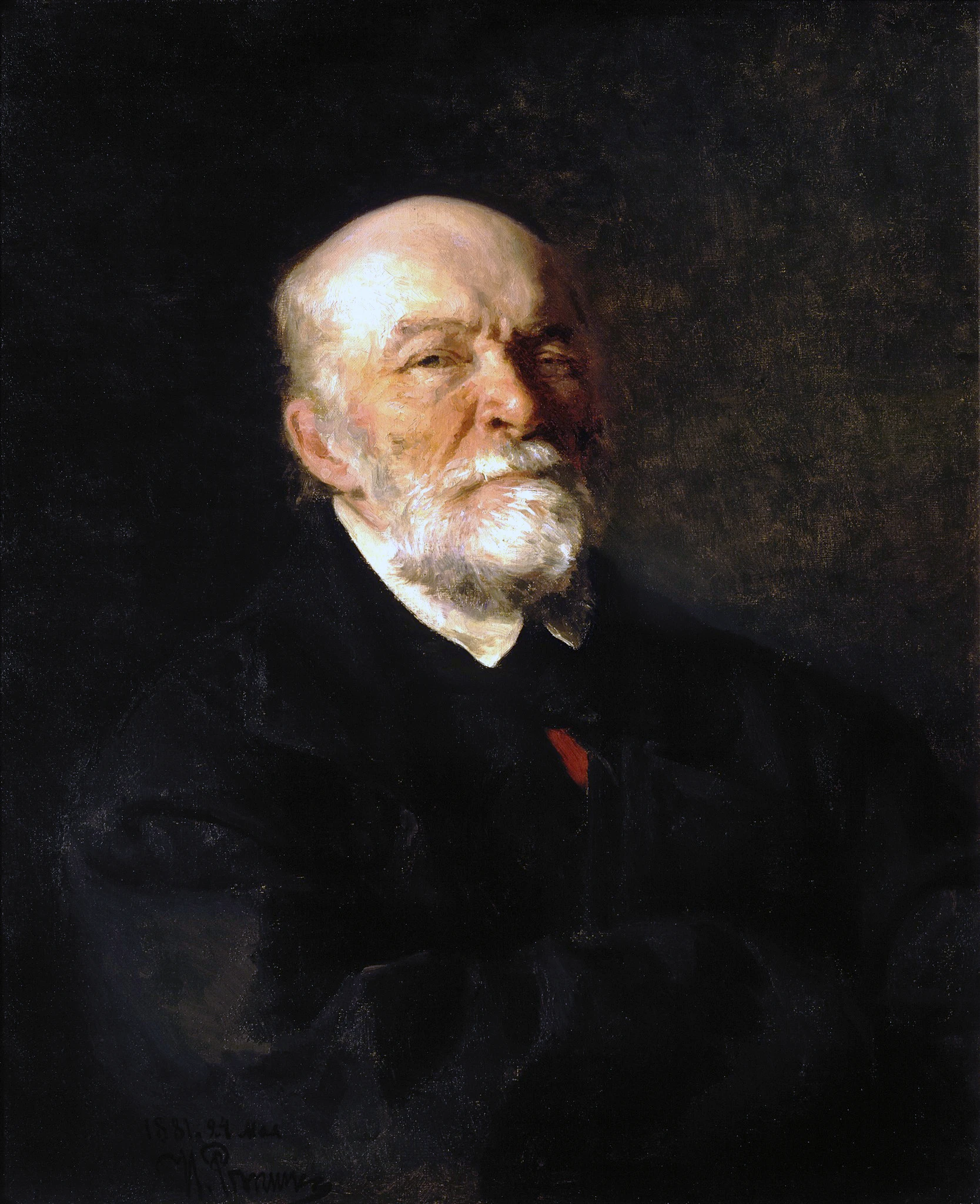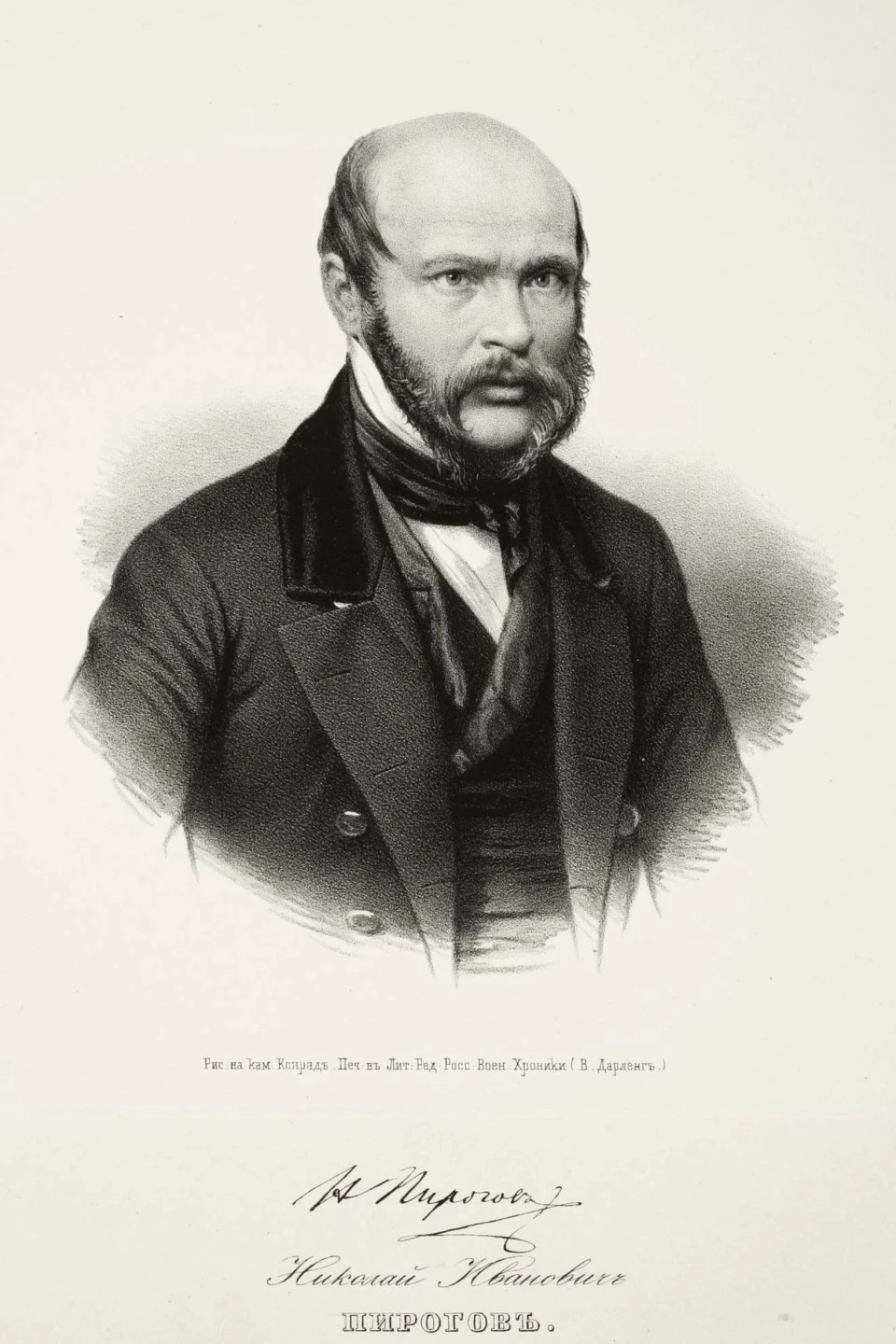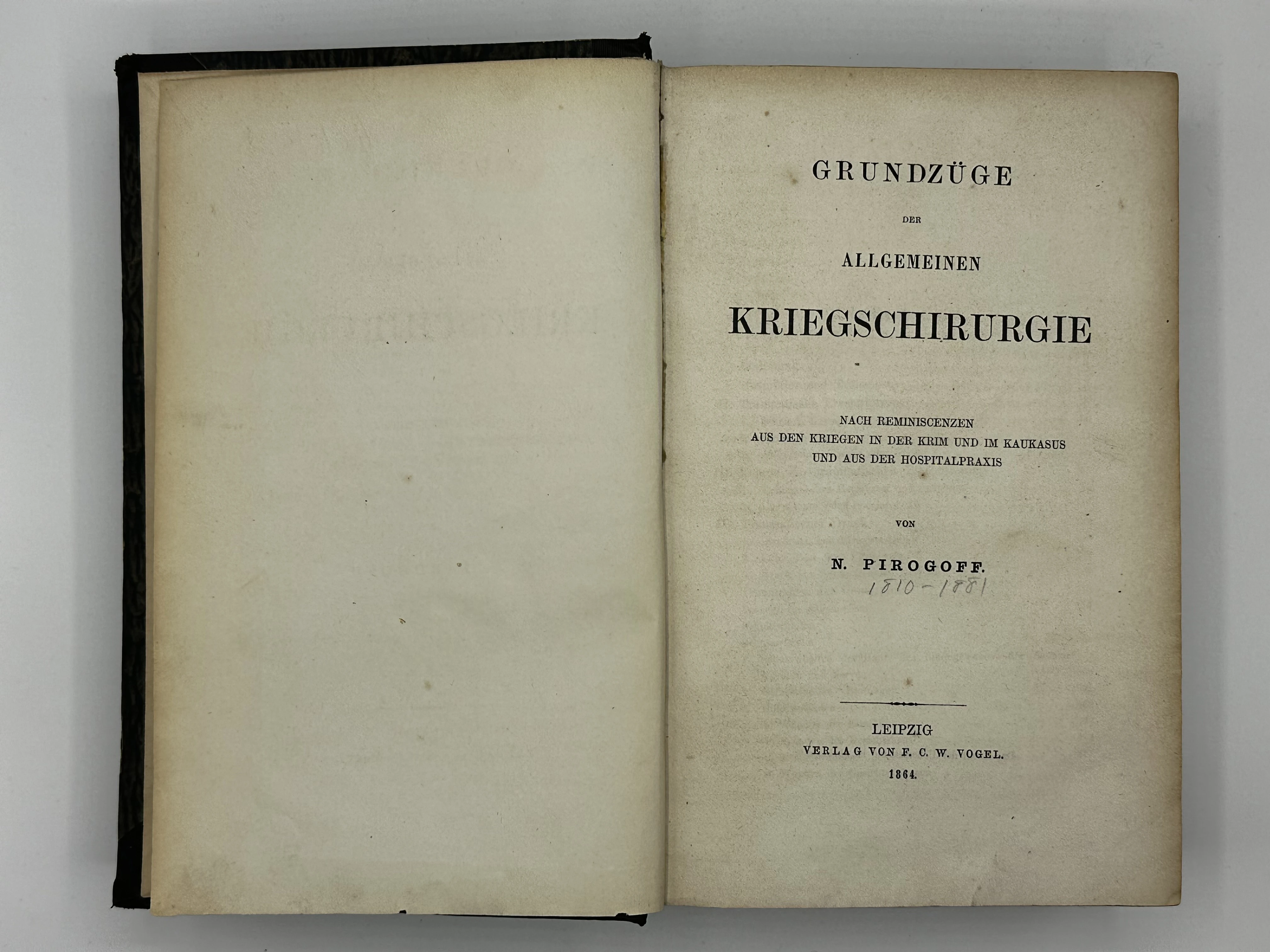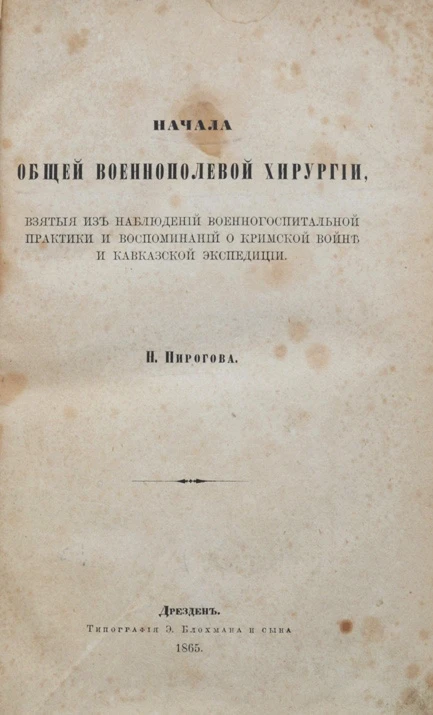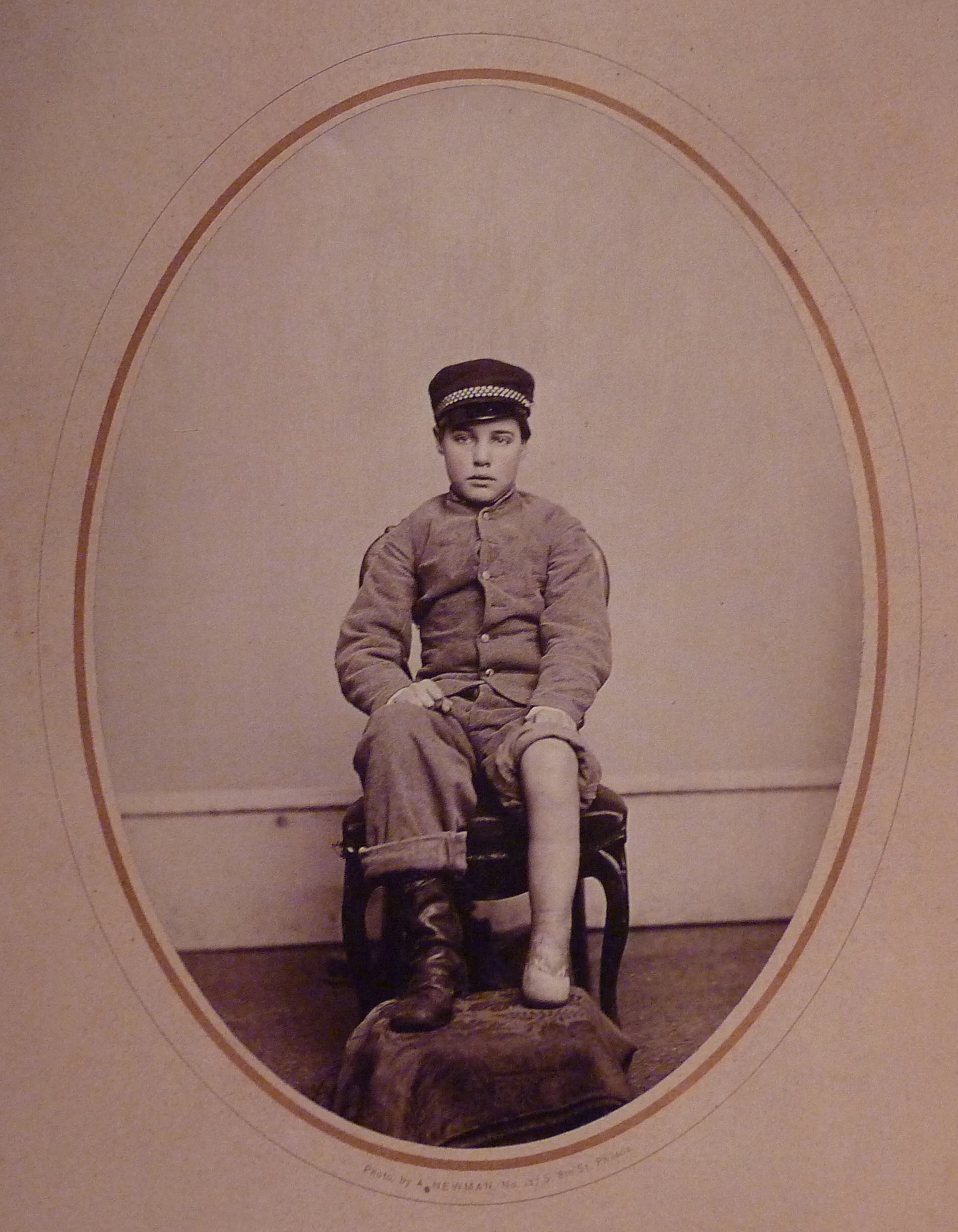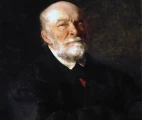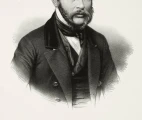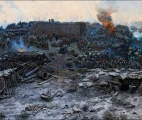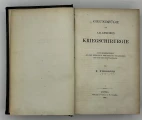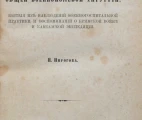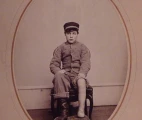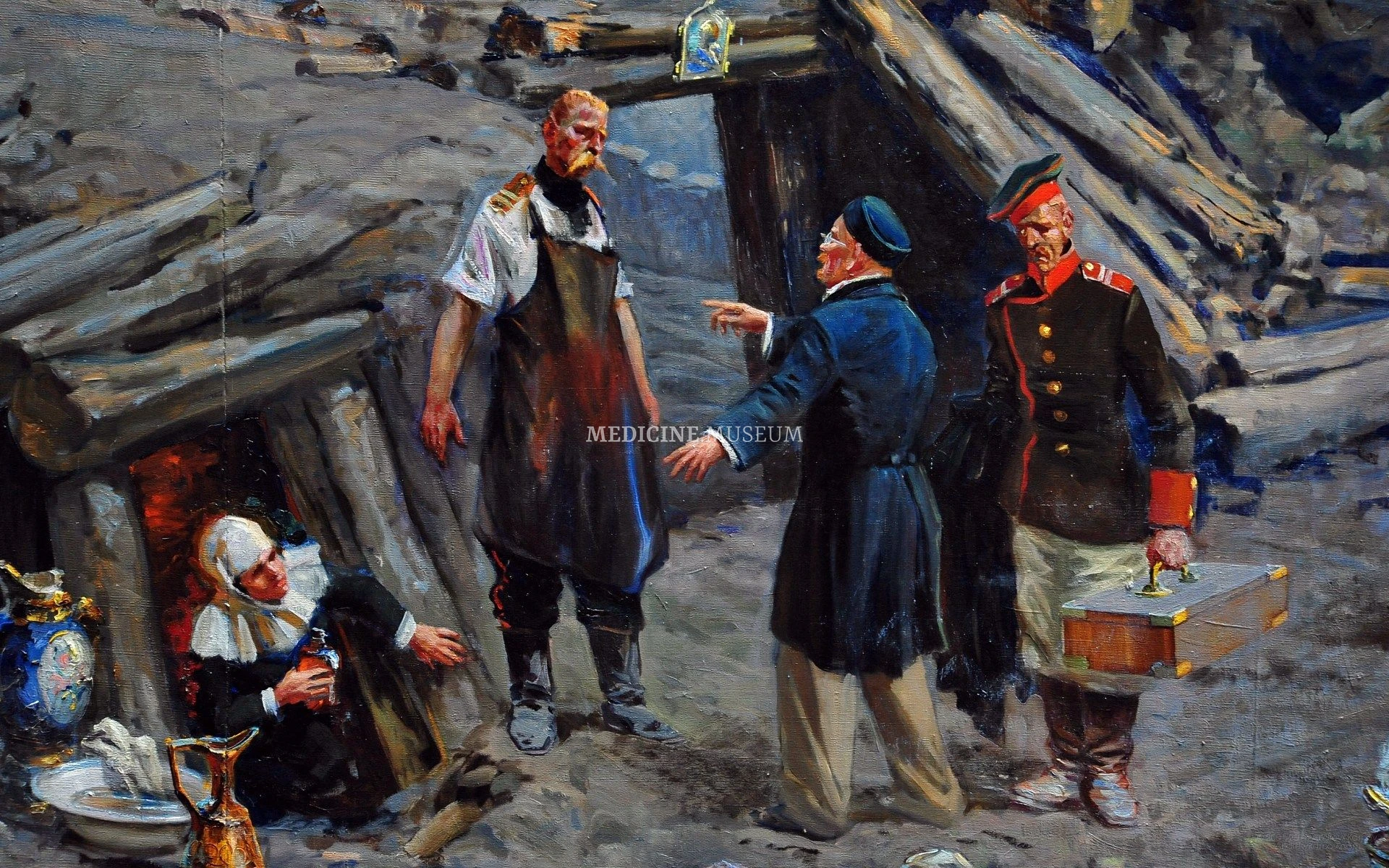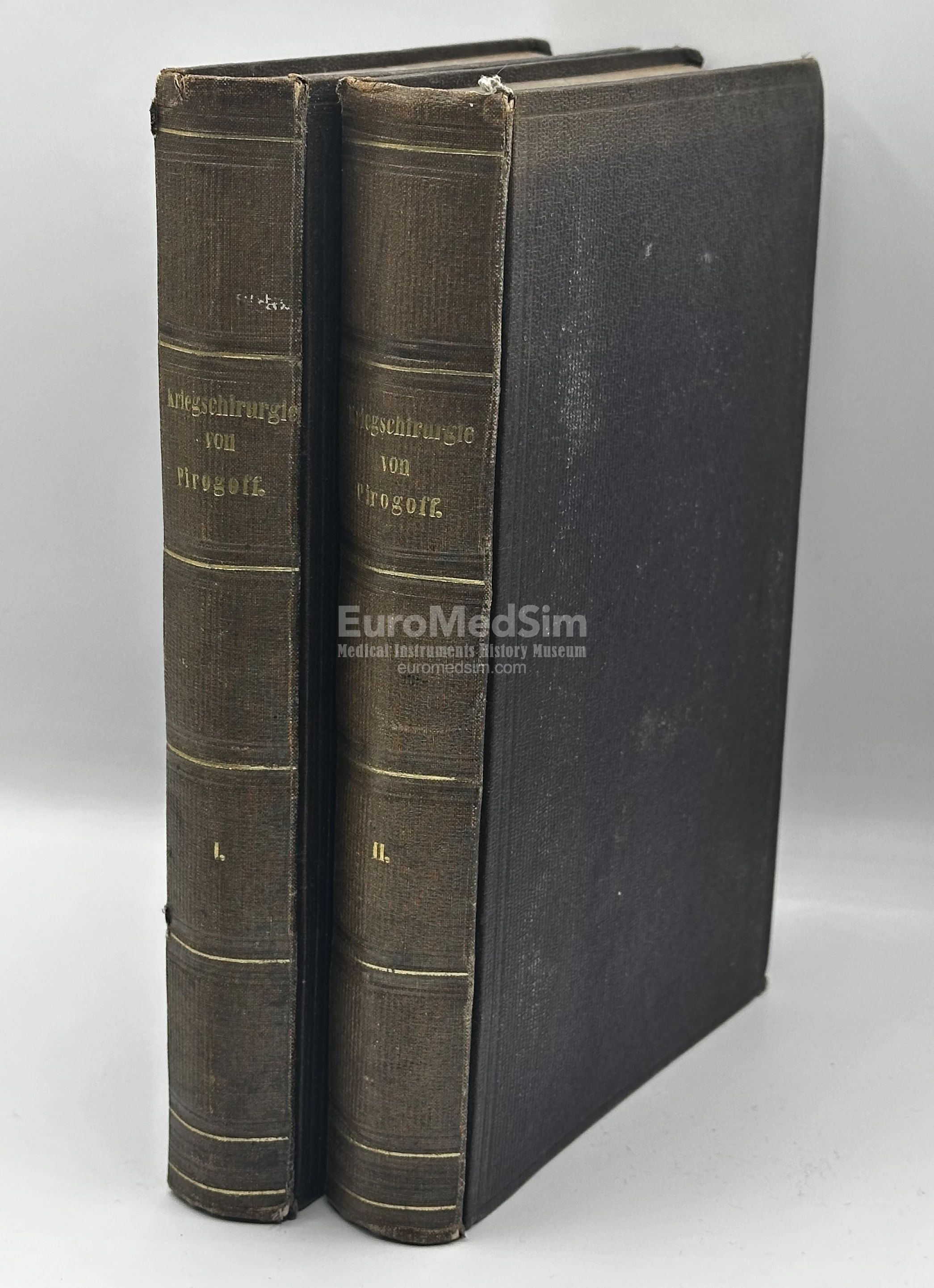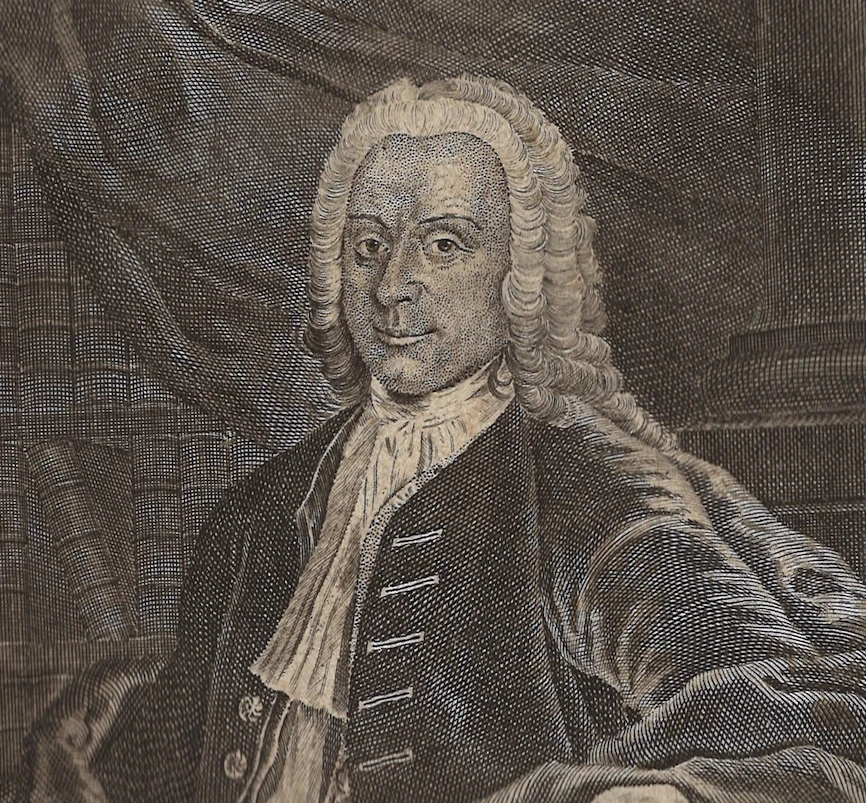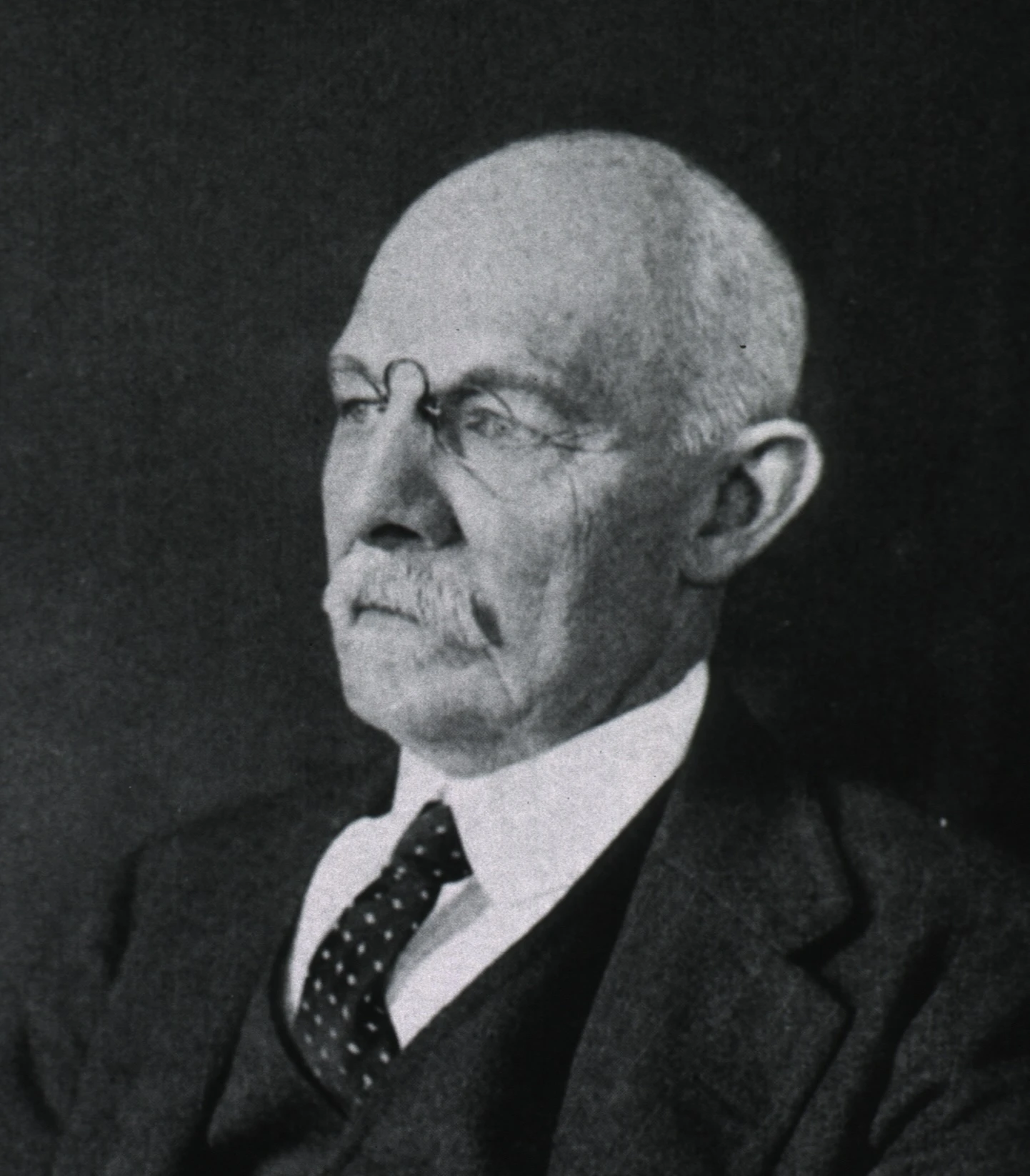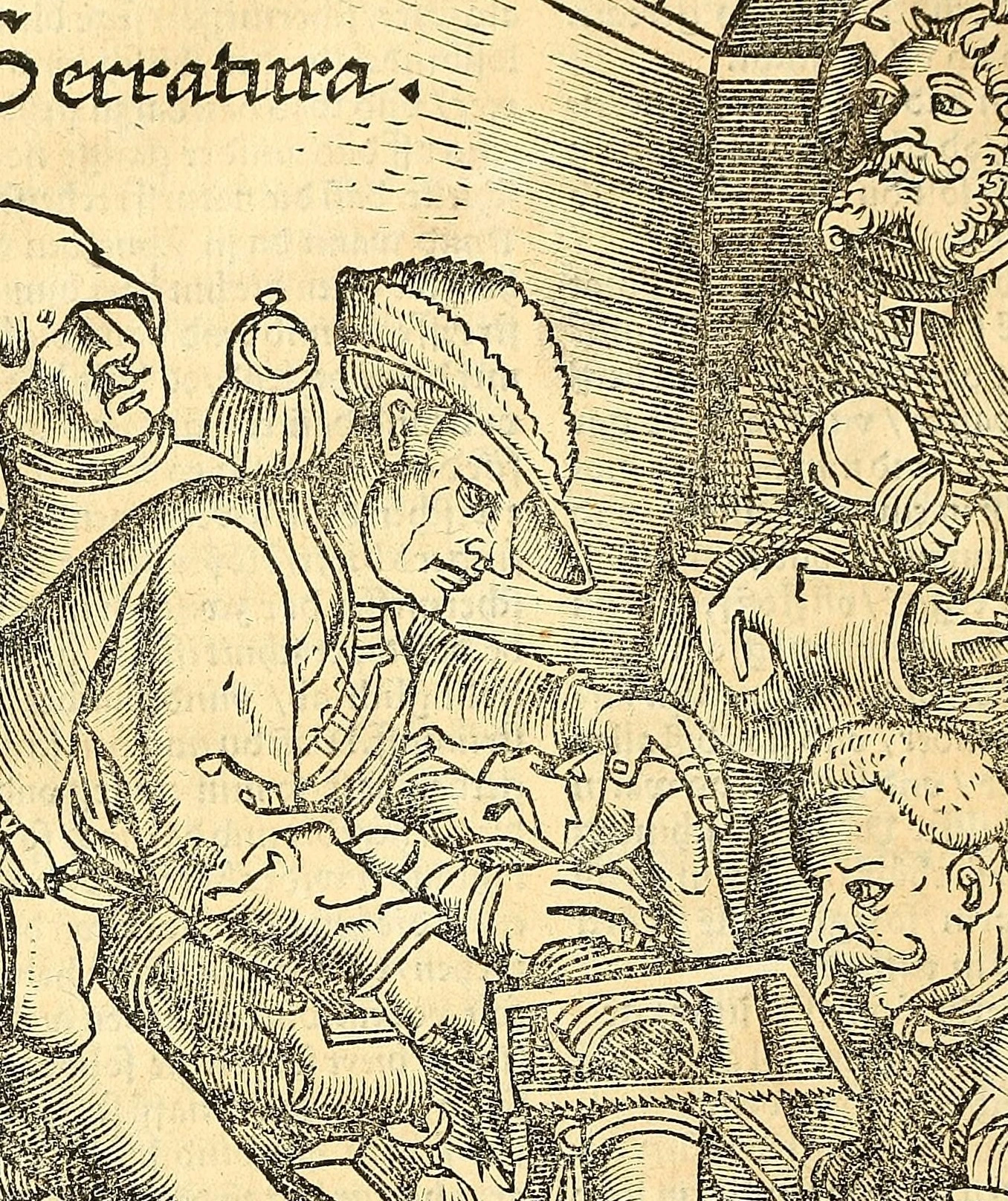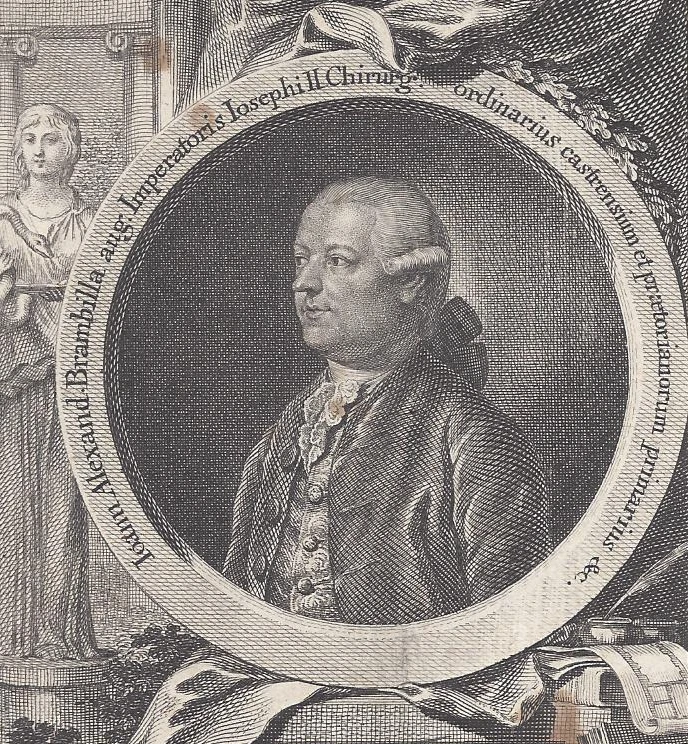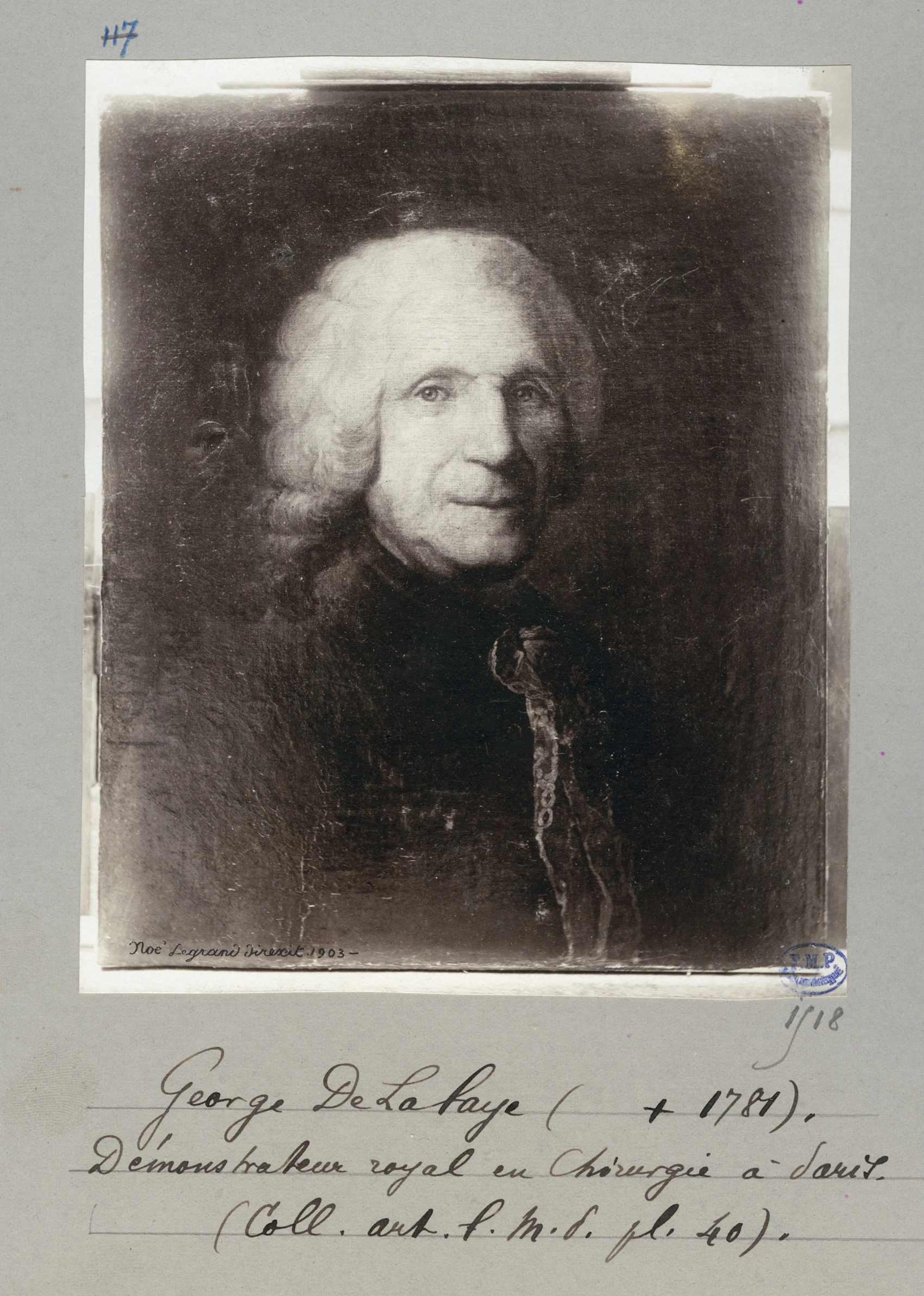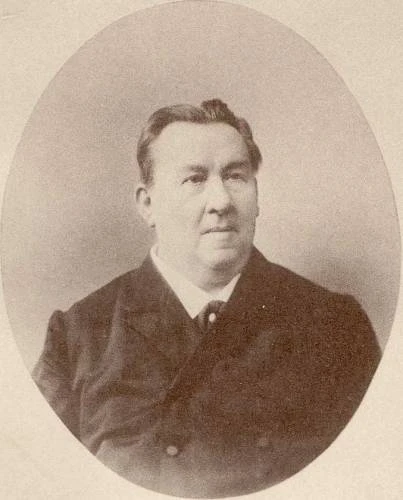Pirogov, Nikolay Ivanovich
Nikolay Ivanovich Pirogov (Russian: Николай Иванович Пирогов; 25.11.1810 – 5.12.1881) was a renowned Russian surgeon, "The father of Russian field surgery" and "The father of Russian topography anatomy", scientist, professor of surgery, publicist and author. He is widely acclaimed as one of Russia's most distinguished doctors.
The most remarkable
- Field surgery and triage
- Anaesthesia in military medicine
- Topography anatomy
Pirogov organized the introduction of surgical anaesthesia in Russia, and made a number of important contributions to the field: "He was the first to describe the negative effects of general anesthesia and the possibility of severe complications . . . He also described many of the modern methods of anesthesia, including inhaled endotracheal anesthesia, intravenous anesthetics, rectal use of anesthetics, and spinal anesthesia" (Ericksson, Miller's Anesthesia, p. 52). He was also one of the first to used ether anaesthesia on the battlefield. Garrison-Morton.com 5655.
World's first narcosis
The world's first anaesthesia using ether was performed by Dr. Crawford Long on March 30, 1842, in Jefferson, Georgia, USA. This marked a significant advancement in surgical practices, allowing for pain-free operations. Nevertheless, this revolutionary event went largely unnoticed in medical circles. The beginning of the Narcosis era came a little later.
On October 16, 1846, William T. G. Morton successfully demonstrated the use of ether anaesthesia at Massachusetts General Hospital, Boston, which garnered widespread attention and significantly influenced surgical practices worldwide. Inspired by Morton's success, many European surgeons, including Robert Liston, began using ether. On December 21, 1846, Liston performed the first operation under ether anaesthesia in Europe, at University College Hospital in London, further solidifying ether’s acceptance in surgical procedures.
World's first narcosis at battlefield
On February 1, 1847, Fyodor I. Inozemtsev, under ether inhalation anaesthesia, performed the first surgery in Russia to remove a cancerous breast. Two weeks later, on February 14, in Saint Petersburg, Nikolay Pirogov performed his first surgery under ether anaesthesia at the Second Military Land Hospital and published his findings, concluding that ether anaesthesia could "completely transform surgery."
With approximately 50 ether anaesthesia operations performed in Saint-Petersburg, Pirogov decided to apply this experience to military field surgery during the ongoing Caucasian War. On July 8, 1847, he traveled to the Caucasus to study the effects of ether anesthesia on a large scale. Along the way, in Pyatigorsk and Temir-Khan-Shura, he introduced local doctors to ether anesthesia and performed several demonstration surgeries.
In the Samur detachment near the fortified village of Salty, Pirogov had to operate in a primitive "hospital" made of straw-covered branches and stone benches. After his initial observations of anaesthesia in warfare, he emphasized the need for trained anaesthetists in the military. Near Salty, Pirogov performed up to 100 operations under anaesthesia.
"Russia, ahead of Europe, demonstrated through our actions during the siege of Salty not only the feasibility but also the indisputably beneficial effects of etherization on the wounded on the battlefield. We hope that henceforth, the ether apparatus will become, like the surgeon's knife, an essential tool for every doctor on the battlefield," wrote Pirogov in the Military Medical Journal (which was not quite the case while ether had recently been already used in surgical procedures at a naval hospital in Malta and during the Battle of Buena Vista in Mexico).
Having studied anaesthesia in experimental and clinical settings, both in peacetime and wartime, Pirogov became a passionate advocate for its use.
Most important works
Nikolai Ivanovich Pirogov is considered the founder of topographical anatomy and military surgery in Russia.
His observations, made using thin sections of frozen cadavers, are reflected in the book Anatome topographica sectionibus per corpus humanon congelatun triplici directione ductis illustrata, Nicolao Pirogoff, St-Peterburg, Jacob Trey, 1859 (Topographic anatomy illustrated with sections through the frozen human body in three directions).
By freezing cadavers, Pirogov preserved the spatial relationships between tissues, enabling unprecedented accuracy in anatomical studies. The book published in Latin provided detailed cross-sectional illustrations in three planes—horizontal, frontal, and sagittal—making it an essential resource for understanding the human body’s structure. It anticipated modern imaging techniques like CT and MRI, which rely on cross-sectional views. Its teaching impact was profound, offering a three-dimensional perspective that enhanced medical education.
In fact, Nikolai Pirogov was not the first to use frozen corpses in anatomical studies [one of the earlier examples was P. de Riemer, 1818 – see comment below], but he significantly advanced and systematized the technique, making it practical and impactful for both anatomy and surgery. Pirogov’s innovation lay in refining the technique and demonstrating its utility for surgical education and practice. He meticulously used freezing to preserve the integrity of tissues, enabling detailed and realistic anatomical studies. These cross-sectional images were revolutionary for understanding the human body in three dimensions and were particularly useful for surgeons.
Another great work of him was Grundzuge der allgemeinen Kriegschirurgie (Leipzig, 1864) (Pirogov N., Basic principles of general war surgery after reminiscences from the wars in the Crimea and the Caucasus and from hospital practice), a year later published in Russian language [Dresden: E. Blochmann & Sohn, 1865-1866]. Pirogov pioneered the use of ether anaesthesia in Russian military surgery, greatly reducing the pain and trauma experienced by soldiers during operations. In addition to the use of anaesthesia on the battlefield, the book describes Pirogov's unique observations and developments, such as the triage system for wounded men and field hospitals, and plaster casts for immobilising fractures and gunshot wounds of the limbs.
Comments
P. de Riemer. Afbeeldingen van de juiste plaatsing der inwendige deelen van het menschelijk ligchaam / Exposition de la position exacte des parties internes du corps humain (Exposure of the exact position of the internal parts of the human body), The Haague, 1818. Full text in PDF: Afbeeldingen van de juiste plaatsing der inwendige deelen van het menschelijk ligchaam on the web-site of Heidelberg University.
